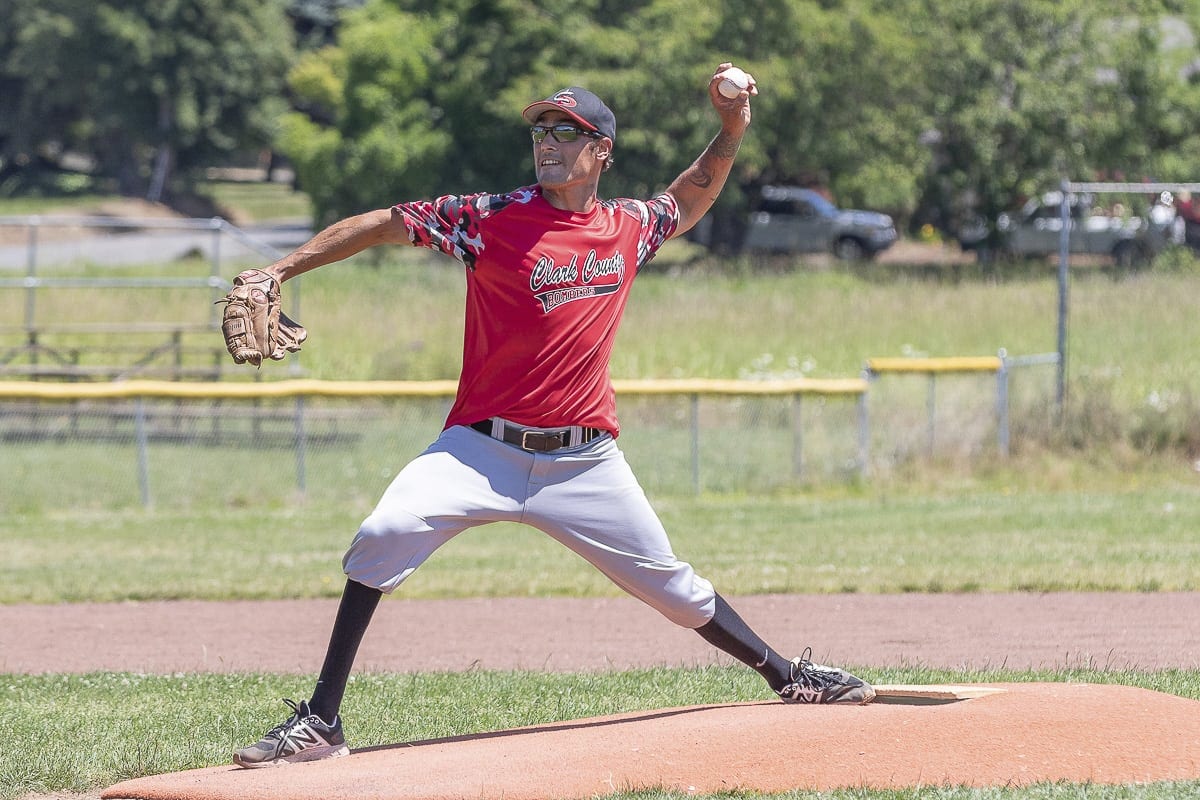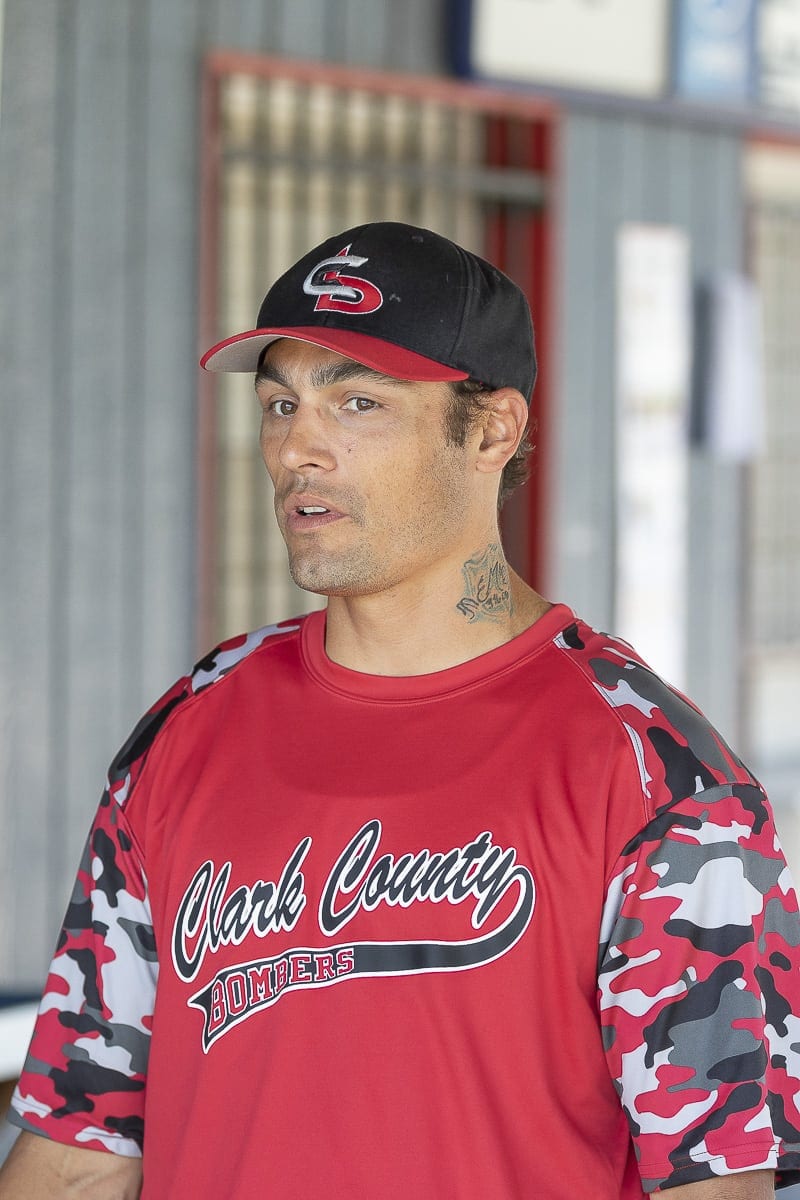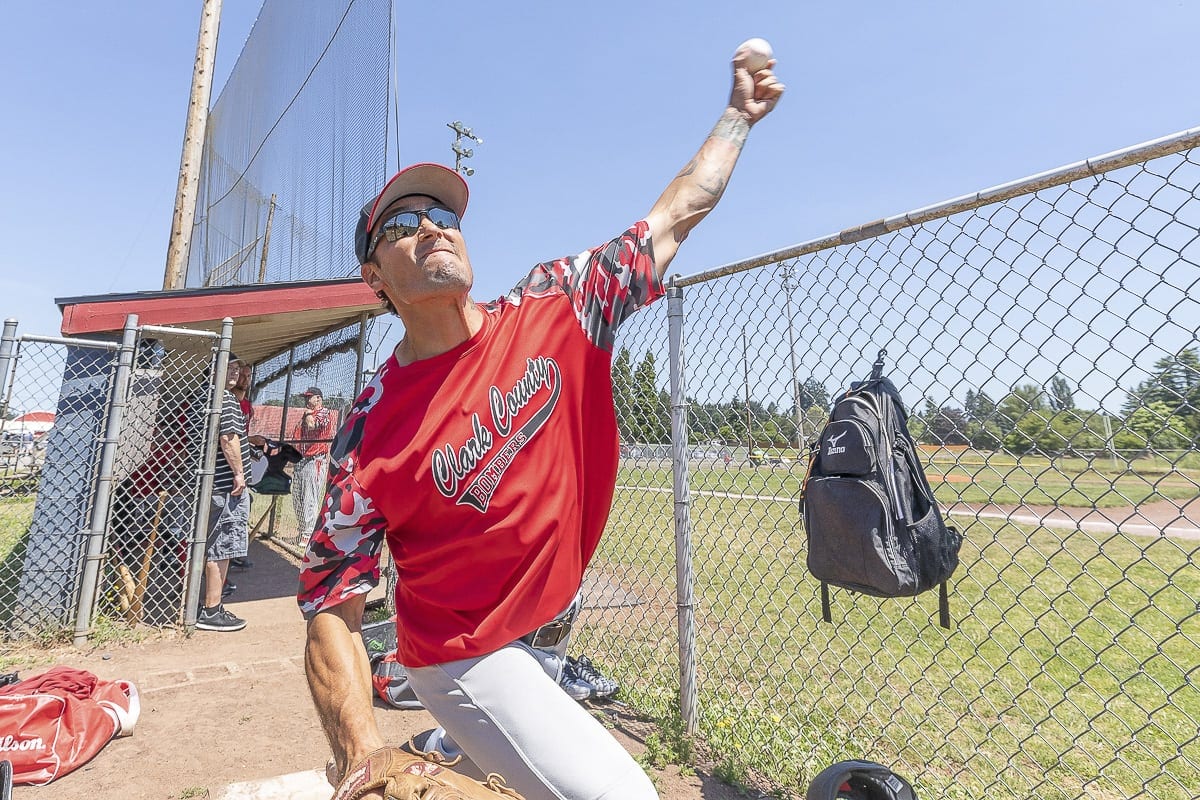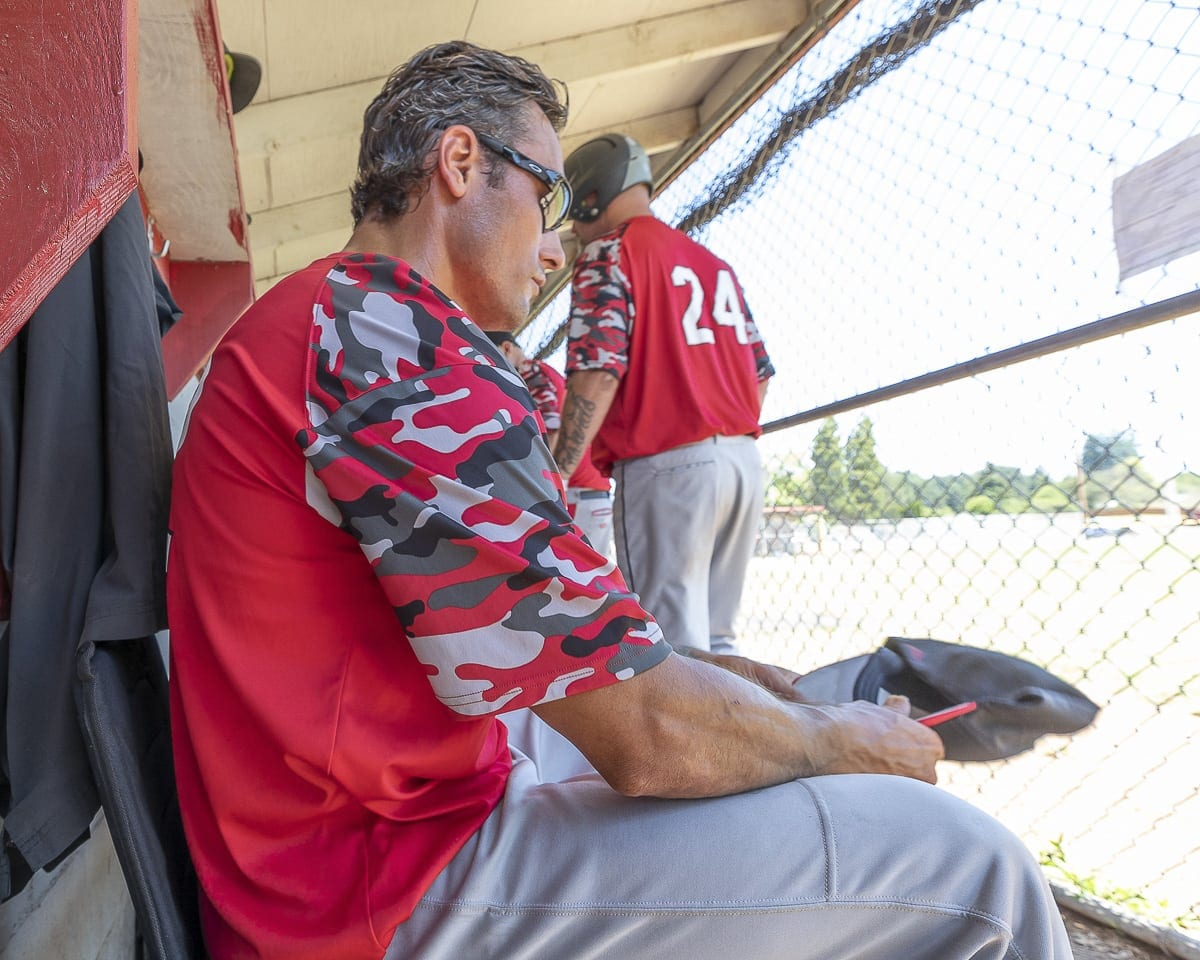Anthony ‘Tony’ Davis learned to walk, and pitch, again
VANCOUVER — For the most part, Anthony “Tony” Davis leaves his wheelchair at home.
He uses it a lot, but usually just to recover from the tough days.
When he is out and about town, though, he prefers to stand tall.

He knows, after all, what he has endured to be in this position, to be able to simply play catch with his son, to “make things easier and be like everybody else,” he said.
Can’t necessarily say things are easy now, but they are a lot easier than when his life was dramatically changed after being injured in a car crash in 2005. Davis, a lifelong Clark County resident, spent four months at a Veterans Affairs hospital.
“When I left there, I was told I’d never walk again,” Davis said.

He was less than a month from leaving the Navy when he was injured. The crash altered his life, but it did not stop him from pursuing the passions in his life.
An athlete growing up, an athlete in the Navy, he is still an athlete. Sports, in fact, helped motivate Davis to buck the odds.
With no control, no feel, of anything below his knees, he figured out how to use the muscles in his back and his limited use of quadriceps muscles in his upper legs to walk. Then he worked on lifting his leg in order to get back to throwing a baseball.
Today, he pitches for the Clark County Bombers in the Southwest Washington Adult Baseball League.
This is not a league for those with special needs. It is competitive baseball for those 35 and older who want to keep playing. There is no special equipment on the field in order for Davis to play. He is simply a left-handed pitcher with a quirky, yet effective, delivery.
“My balance is my biggest issue,” Davis said.
The key to his pitching mechanics is to control his hips and torso, lining them up with the foot on the pitching rubber. Then it is all about the landing after he throws the ball to the plate.
“It’s gracefully falling,” he said, “and I catch myself.”
Davis noted he can still throw hard and hit a spot.
“I’ve been coaching in adult leagues and playing since 1988 and I’ve never seen anything like it,” said Bombers coach Mark Stevenson. “He’s an inspiration to the whole league.”
In a recent start, Davis went five innings, giving up one run in a game the Bombers would win in extra innings.
“Sometimes it just doesn’t feel real,” Davis said, appreciating every time he gets to play. “I have to pinch myself. It’s almost like a movie.”
Davis has never shied from hard work. An athlete at Prairie High School for two years, he then moved to La Center and played baseball and football for the Wildcats.
After graduating with the Class of 2000, he joined the Navy to become a rescue swimmer. A rescue swimmer? Oh yes, he jumped out of helicopters into treacherous waters in order to save others.

He had two tours to the Middle East in the early years of the operations in Iraq and Afghanistan. In fact, he was on the USS Abraham Lincoln when President Bush gave his speech with the “Mission Accomplished” banner behind him.
He was less than a month from leaving the Navy when he was traveling north on I-5 near Modesto, CA, sitting in the backseat. The vehicle he was riding in rolled four times. He said his seat belt broke, and he was ejected from the car.
“They found me in a ditch,” Davis said, noting the only details he has of the incident come from the police report.
“There is a month of my life I don’t remember,” he said.
He still has no feeling in his stomach. His collarbone is not attached to his shoulder. He puts it back into place on his own when the need arises.
The injury to his back was the real game-changer. He had breaks in the T-12 (Thoracic) and L-1 (Lumbar) vertebrae. Surgery fused his spine from T-10 to L-3. He has 17 screws, plus rods on each side of his spine.
Months after surgery, he was told to prepare for life without the ability to walk.
“I was really dedicated,” he said of his rehabilitation, adding that his training in the Navy helped when he had doubts. “Even if I didn’t think I had more, I did. I just learned to push myself until the pain was too much.”
He had a support system, too.

He moved back to La Center, to live with his grandparents who already had a handicap accessible home.
“My grandparents took care of me,” he said. “They allowed me to get stronger.”
He also had a friend in a former coach.
“Other than family, Coach Lambert was the biggest help to me,” Davis said, referring to John Lambert, who is still the La Center football coach.
It was Lambert who gave Davis a job as an assistant coach. That was Davis’ first taste of coaching, doing what he could for his former team as he got better with his own mobility.
Since then, Davis has gone to camps and clinics to improve his coaching skills. Last fall, he was an assistant with the Fort Vancouver football team. This spring, he was with the King’s Way Christian baseball team.
“Sports have kept me motivated and kept me in it,” Davis said.
His injuries also led him to a new sport. At a clinic for disabled veterans, there was a contest to win a T-shirt for the person who could record the best time on a rowing machine. Davis won, and then he was asked to try the real thing — rowing on the water.
“It was the closest thing to flying that I had experienced since being out of a helicopter,” Davis said. “I really fell in love with rowing instantly.”
In 2011, two years after his introduction to the sport, he ended up making the U.S. team for the paralympic/adaptive rowing squad. He still rows to this day, still competing and hoping to represent America again.
Married to Stefina, they have 2-year-old daughter Jacqueline and live in Ridgefield. Davis also has a 12-year old son, Ethan, from a previous relationship.
Davis plays baseball, he rows, he plays golf, and he coaches, and he does all of those things because he wants to show his children that there is nothing stopping them from achieving their dreams.
This is a man who was told he would never walk again.
Now he is is a man who willed himself to pitch again, to stand tall on the mound, and to deliver a strike with grace.




